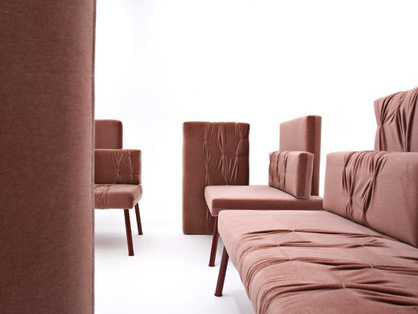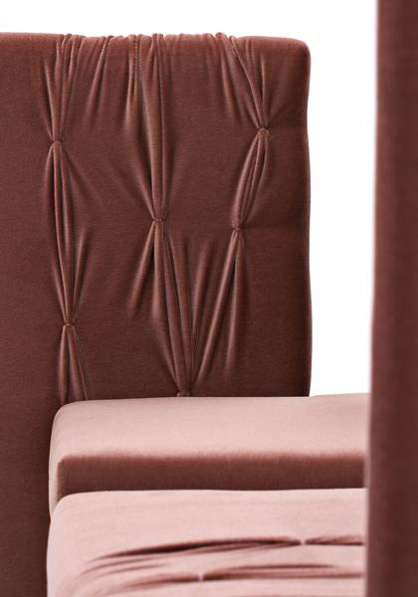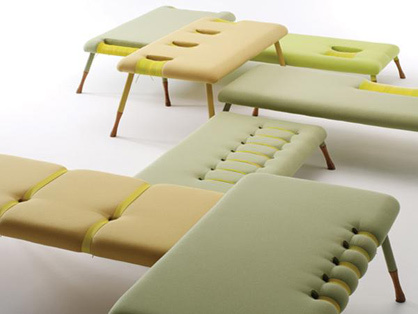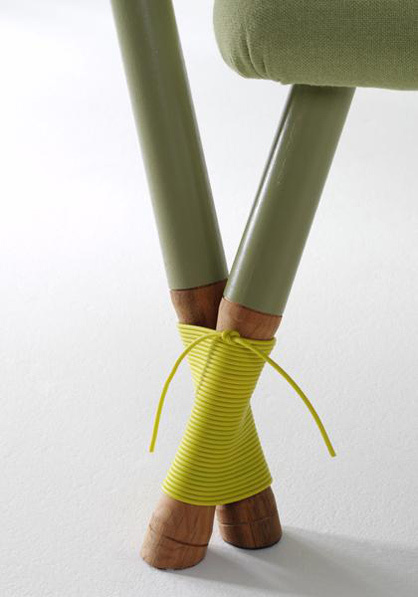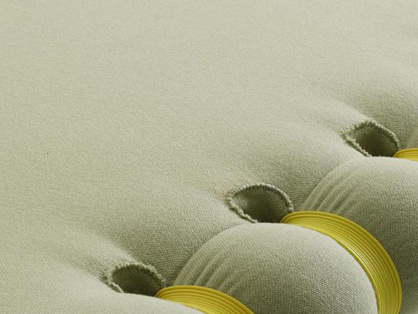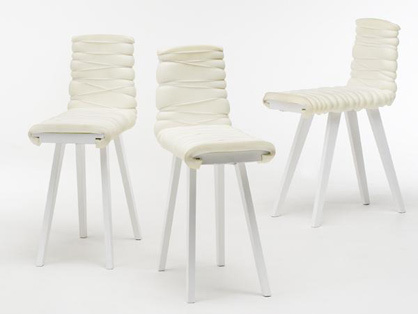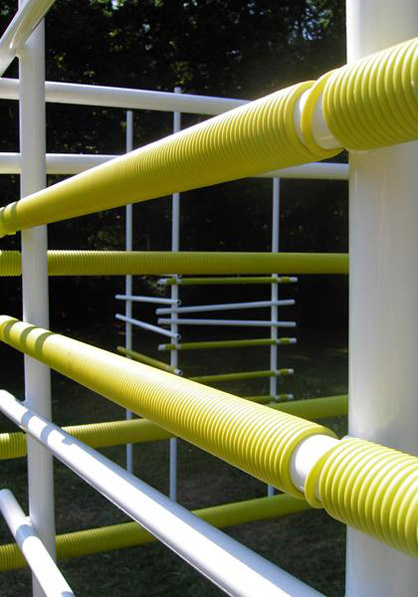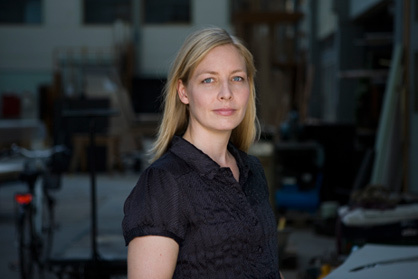Between Improvisation and Perfection
Texte par Nora Schmidt
Berlin, Allemagne
05.09.08
Even if the influence of traditional Scandinavian furniture design on her work is unmistakable, Ditte Hammerstrøm's design is far removed from dry Nordic functionalism.
Even if the influence of traditional Scandinavian furniture design on her work is unmistakable, Ditte Hammerstrøm's design is far removed from dry Nordic functionalism. Since graduating from the Danish Design School in Copenhagen she has, together with a number of other young designers, presented designs which more or less experimentally explore new directions beyond the modernistic Danish classics – not easy in a country with such rich design traditions.
Ditte Hammerstrøm's work consists of installations and functional sculptures but also sturdy pieces of furniture which, with their interplay of perfection and improvisation, permit no clear differentiation between art and design.
Socialising Sofa from the year 2007 is the most unambiguous description of Hammerstrøm's humorous treatment of traditional stylistic elements, which she re-interprets by implementing it less than perfectly. Accordingly the gathers which result when the cloth is fixed to the upholstery material and are traditionally folded as evenly as possible, are here deliberately irregular and appear almost makeshift.
Loungescape was developed in close cooperation with Erik Jørgensen. As part of the Danish manufacturer's Greenhouse scheme the experimental projects of young designers are supported, prototypes are produced and in this way a high quality presentation of the objects is made possible.
Loungescape consists of seven upholstered benches which are arranged in different ways and can be connected with one another by synthetic cords attached to the legs. Similarly to the Socialising Sofa here, too, upholstery techniques are also quoted decoratively.
Ditte Hammerstrøm was honoured with this year's Danish Walk the Plank Award. Her work can be seen at the Museum for Art and Design in Copenhagen from 28 August to 26 October and at the Trapholt Museum in Kolding, Denmark, from 28 January to 26 April.
